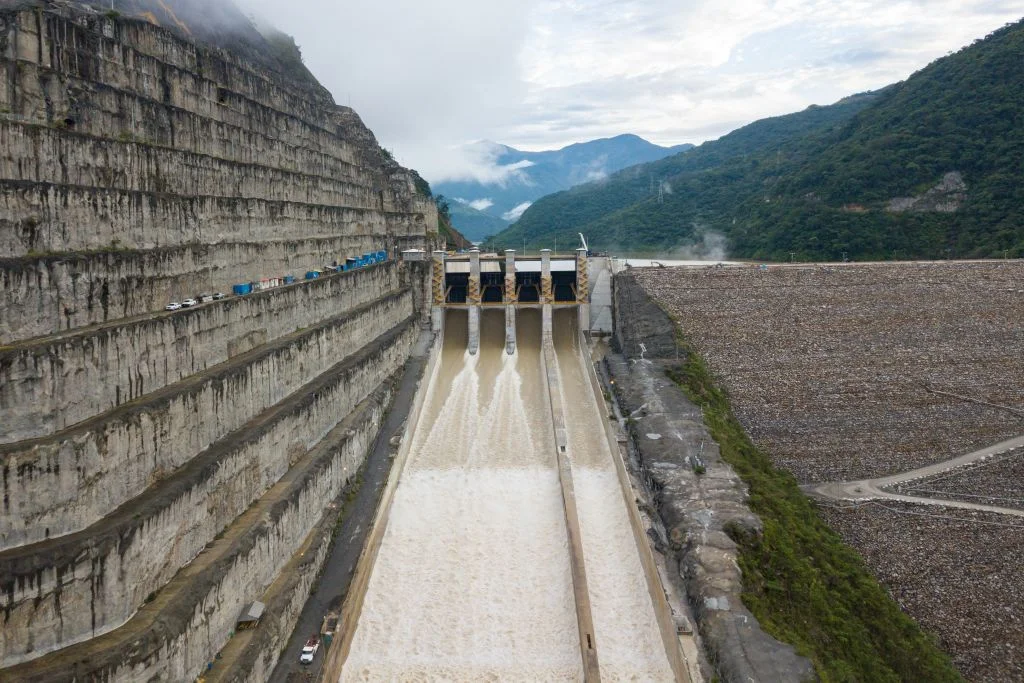Latest News
- Uber driver's account in Toronto suddenly deactivated; only source of income cut off after 'duplicate account' claim
- TDSB education chief fired by provincial supervisor; sweeping changes at Canada's largest education board
- 34 members of the "44" gang arrested in massive Durham police operation; millions of dollars in drugs and weapons seized
- Waterloo artist turns Ontario winter into art with backyard snow sculptures
- Third suspect arrested in connection with four murders in Carry the Kettle Nakoda community
Latest Ads
-
Jasmine Jewel
Call
-
Omidan group
Call
-
Amir Madanpour
Call
-
Dimo studio
Call
-
Yorkacademy
Call
-
Maryambagheri
Call
-
Shishlix Restaurant
Call

Demand for cheap, clean hydropower is soaring. Can Quebec keep up?
On one stretch of the St. Lawrence River, just southwest of Montreal, the constant hum of turbines echoes through the air. Eight million liters of water flow through the Bohrneus power station every second – enough to fill three Olympic swimming pools – generating enough energy to power almost 400,000 homes. Quebec is a hydroelectric powerhouse, with 61 generating stations on rivers and reservoirs across the province and, in a typical year, the largest exporter of electricity in the country. With demand expected to increase in the coming years in both Canada and the northeastern United States, can Hydro-Québec meet this demand? Experts predict a period of rapid growth in electricity consumption to meet the growing needs of data centers, factories and residential consumers, turning Quebec into what Premier François LeValte calls "the battery of North America." But the utility's reservoir levels were well below average in 2023, during an unusually hot and dry year across Canada, raising concerns about the future of hydropower in the face of climate change.
Overall, exports to the U.S. from Canada fell nearly 25 percent last year to their lowest level since 2016. In its annual report, Hydro-Québec blamed "low snow cover" as well as "lower-than-normal spring runoff and average summer and fall precipitation in northern Quebec" for "inflow into the company's large reservoirs" than usual. That meant the utility had to cut its exports to 23 terawatt hours (TWh) last year – about nine percent less than the year before. B.C. Hydro was even worse, having to import more electricity from the US last year due to dry conditions. Manitoba's hydropower production also fell by 12 percent. Despite these challenges, demand is expected to increase in the coming years.
During a recent tour of Beauharnois, Hydro-Québec spokeswoman Lynne Saint-Laurent said fluctuating water levels is something the utility "has been monitoring for decades" and is prepared to deal with. He pointed to 2014 research that suggested Quebec could get more rainfall as the Earth warms. "Certainly there was a lower level in 2023, but the variability of water flow is actually very well known in the hydropower industry," St-Laurent said. He said there will be years when "inflows will decrease — because there's variability — but the general trend is for them to increase over the next decade." Drought has B.C. utilities Import more electricity – and that will affect your bills in 2024.
Christopher McCray, a climate simulation specialist at Uranus, a Quebec climate research group, said models show more annual precipitation in Quebec in coming decades — but also more variability. "There is definitely a risk that there will be periods of less water availability," he said. McCrae said there will likely be drier and warmer periods that will last longer, which "may lower water levels in lakes and rivers."
news source
Suggested Content
Latest Blog
Login first to rate.
Express your opinion
Login first to submit a comment.
No comments yet.


































